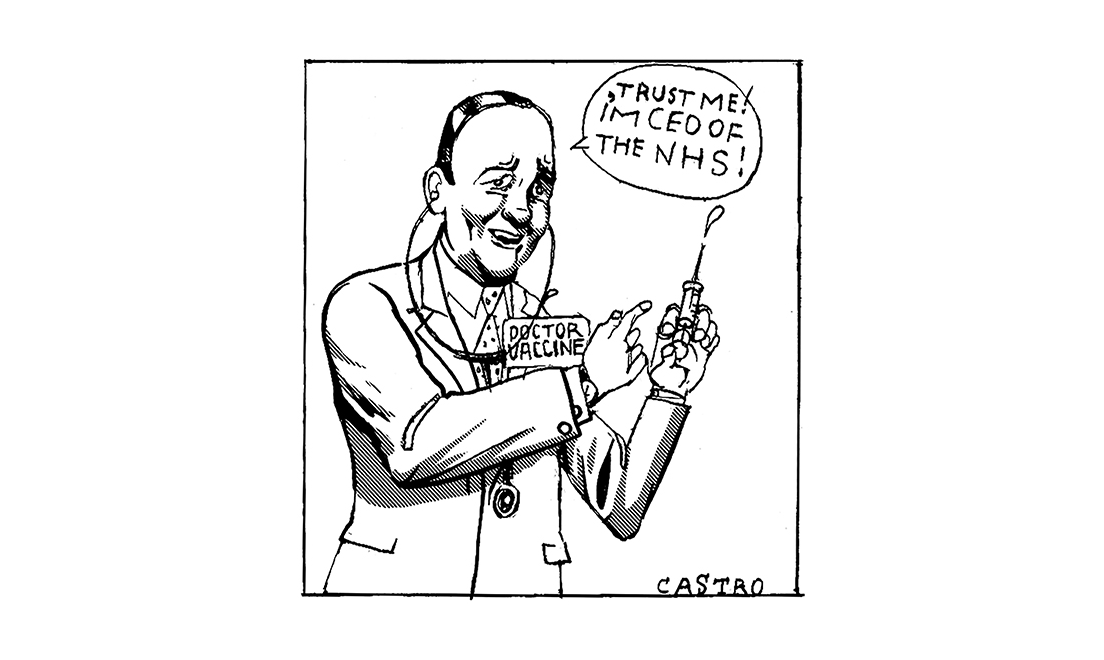Things are starting to get more awkward for Rishi Sunak — something the Chancellor has long been prepared for. He knew that the early months of the pandemic, in which he gave out billions in taxpayers’ cash, would fade to the rather more difficult landscape he now faces: trying to rein that spending in — and stop ministers from eking more and more out of the Treasury for their own departments.
At this morning’s Treasury questions, Sunak inevitably faced questions about the bombshell dropped by NHS chief Sir Simon Stevens in a select committee hearing that the NHS had been budgeting for a 2.1 per cent pay rise. Katy offers more detail on Stevens’ words here, but in the Chamber, shadow chancellor Anneliese Dodds demanded a ‘straight answer’ on whether the Conservatives ‘believe our nurses are worth less now than they were before the pandemic’. Sunak replied:
I pay tribute to all of those working on the frontline of our NHS and other public services. They are doing a fantastic job and that’s why this government has supported the NHS with tens of billions of pounds of extra funding through this pandemic and we’ll continue to do so. With regard to public sector pay, Mr Speaker, we set out a policy in November, but given the situation we are taking a more targeted approach to public sector pay to balance fairness and to protect as many jobs as possible. The Honourable lady will know that the NHS was exempted from that policy, and NHS workers will receive a pay rise next year.
Stevens wasn’t just talking about NHS pay, though. He also warned the select committee that there was ‘an urgent need’ for the Treasury to give ‘funding certainty to hospitals and to local frontline services’, given the majority of Covid patients had been hospitalised since the spending review in November allocated additional funding for the health service to deal with Covid-related costs.
He expected that this would be resolved very shortly, but also told the committee that the Chancellor had ‘already’ set out money for Test and Trace and for the furlough scheme. This was delivered in Stevens’s classic deadpan style but was clearly a pointed remark intended to underline where ministerial priorities seem to lie.
There is — as you’d expect — a difference in opinion between ministers in the health department and those in the Treasury about the importance of allocating yet more money for the health service to clear the backlogs in treatment.
One of the problems is that the NHS has never not asked for more money. Chancellors can quite quickly grow fatigued with the way in which billions of pounds never appear to make an impact and that the NHS does not seem to keep up its side of the deal in tackling waste and improving efficiency. But Stevens, who is a powerful political operator in his own right, is clearly on Sunak’s case.
Also on the Chancellor’s case are those who think he bears a large part of the responsibility for the second wave of the pandemic as a result of his Eat Out To Help Out scheme. He was pressed on this as well today, and gave this rather defensive answer:
Well, Mr Speaker, I’d urge the honourable lady to be a little bit careful about what she reads in the newspapers. At all steps in this crisis, we have indeed taken the advice of our scientific advisers. If we go back to September, which I think she’s referring to, at that time — as she knows from the minutes herself, which are published, rather than unsourced quotes in newspapers — that the evidence was finely balanced and there were many things for ministers to consider, and the consideration at that point was that the tiered system was working and deserve to be given a chance.
A curious thing about the session was that while both of those questions came from Labour frontbenchers, the opposition put in a rather low-energy performance in the chamber today. If they really think Sunak was responsible for the second wave and that he’s now getting himself into a political mess with the NHS pay plan then they should make more of an effort to turn up the heat, rather than dutifully asking questions before trundling off without causing much of a flurry.







Comments